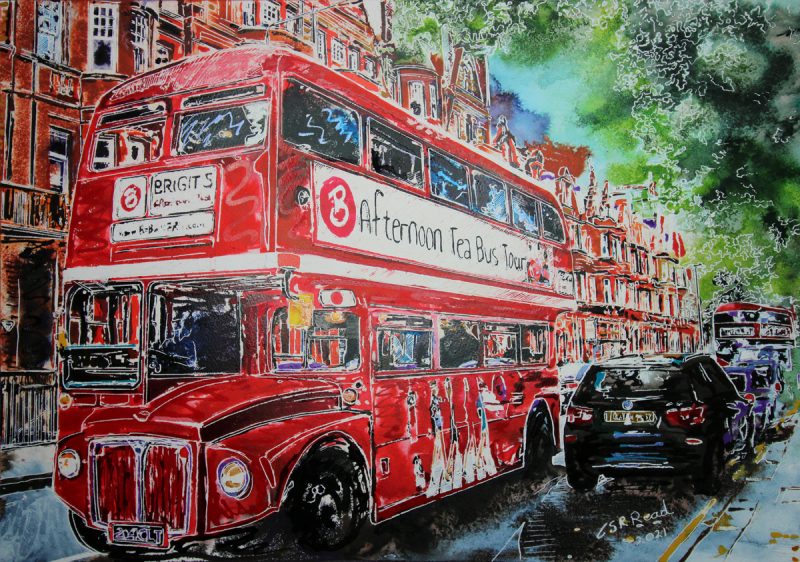Brigit’s teatime bus is as British a symbol as you can imagine, tea and buses. What is it about the red Routemaster bus that makes it so appealing?
It’s an iconic London symbol, but it’s more than that. I’ve mentioned before that they were everywhere, not just in our nation’s capital, but tourist’s will always hold that perception.
The Routemaster shape is a classic, which has some curious features. The open back allows passengers to alight and disembark while the bus is in motion. I remember doing so myself on numerous occasions, although I always preferred jumping off when the bus was stationary.
Sometimes, as children on the way to school, there was some bravado over who would dare to jump off first before reaching the bus stop. It was never me. I had no death wish. It’s no wonder red Routemaster buses were phased out – the safety hazards must have been horrendous. There were other reasons, but we won’t go into those here.
The love for the Routemaster has led to their preservation. Devotees snapped them up and converted the busses into many things: holiday homes; wine bars, wedding transport, and a mobile tearoom, as we see here.
I never even knew these Tea Buses existed. Even as I took this photograph, I just saw a Routemaster coming towards me. I failed to register it as a tea bus until I started searching for painting subjects. Looking closer and cropped it down, the tea bus revealed itself. Adverts are commonplace on buses, so what it said was ignored. Now, it’s obvious looking at the front – it’s white, there’s no number and where’s it going?
After some research, I discovered that it is a bus tour with afternoon tea and cakes. How civilised!
Brigit’s teatime bus, here I come. I shall be booking a place as soon as lockdown is over. Of course, my camera will come along too! On my daily bus commute across Manchester as a child, I frequently wished I had had a camera. It’s a great way to see any city and gives you a different perspective from street level.
How I wish I’d had a camera in those days!

